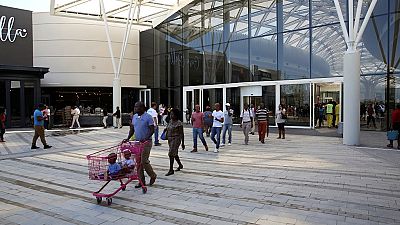
Tomorrow, I will be making a presentation to a client, a foreign company that invests in commercial real estate (mainly shopping malls) in continental Africa. My firm serves as an independent advisor, providing insights as the investor deploys capital in our continent. The firm had hired some companies to prepare market intelligence reports on continental Africa at regional levels. When the reports were sent to my office, we had some exceptions: we concluded that the market intelligence work was not evolutionary. Largely, the reports were mundane, looking at real estate competitors purely within the real estate sector.
This is part of my comment: “We have reviewed the reports. Unfortunately, the reports miss a very critical point: they failed to model the impacts of Konga, Jumia and other e-commerce companies in Africa on real-estate should the ecommerce firms become very successful. We do believe that investing in malls and commercial real estate in the age of ecommerce must capture the latent disruptions on real estate values if commerce in Africa moves online, at scale. Should that happen, we may not have the need for many shopping malls, and the implications will be that real estate value will drop in many African cities”.

My client called me right away, asking why we made that correlation. I explained that I have seen that competitors in real estate companies in U.S. are not necessarily real estate companies but Amazon. As Amazon advances across American cities, shopping malls are closing and remaining ones losing values. So, the competition is not coming from industry players, but a clearly different parallel sector. So, modeling competition in the real estate must include what is happening in the ecommerce sector.
Register for Tekedia Mini-MBA edition 19 (Feb 9 – May 2, 2026): big discounts for early bird.
Tekedia AI in Business Masterclass opens registrations.
Join Tekedia Capital Syndicate and co-invest in great global startups.
Register for Tekedia AI Lab: From Technical Design to Deployment (next edition begins Jan 24 2026).
I was quick to note that Africa is not there yet, but investing in shopping malls must take into considerations that we may have massive dislocations in the structure of commerce where shopping malls will not have much value. Yes, we still need shopping malls today. But it is very important we understand potential impacts as decisions are made. Africa does not have a lot of malls to start with, but the continent is modernizing.
This insight applies to any company investing in shopping malls. The fact is this: within the next decade, we will not have shopping malls in most American cities. Africa will have its own moment and we can even leapfrog because we never really shop in malls to start with.
Our perspectives on the potential disruption of shopping malls by African ecommerce should apply to insurance companies who are good at investing premiums in real estate. They need to model how ecommerce is growing in the selected cities and how such growths could affect the commercial values of shopping malls over time.
Tomorrow, I will provide insights on how my client can model some of the challenges by looking at different scenarios on what ecommerce can do on commercial real estate (shopping malls) in Africa. It will be interesting.
Added This Comment on LinkedIn After a Question
The Question: Some weeks back Sir, you explained some of the logistics challenges affecting e-commerce business in Africa and how Africa isn’t there yet, was this also considered, Furthermore, a lot of consideration need to go into how long the company wishes to invest in shopping malls in relation to the empirical assumptions to when the values of shopping malls will start dwindling in Africa.
Ndubuisi: Sure – there are many elements. Yes, some specific cities may get ecommerce faster. If you are going to build a mall in VI or Lekki. I do think you need to worry if Gloo/Konga/Jumia and others will figure out ecommerce within a decade even though no one cares what is happening in Aja or Opopo.
So, broadly Africa may take years, but specific regions or areas in cities may be ready in few years. Lekki is a new city with no typical African open market. If they figure out ecommerce, you may never have to need a Mall. But that does not mean that building malls in Aba will not be a good idea. Broadly, logistics is an issue. But that does not mean that ecommerce cannot reach optimum level in specific cities within 5 years. I think VI and Ikoyi will may there. Focusing therein keeps marginal cost (i.e. distribution cost) low.
Unfortunately, people that want to build malls always target those areas where ecommerce may do well. Why? That is where the money is. So for me, how can we reconcile those factors at city level. That is what I have to help my client sort out. They will invest, but we need to be prepared ahead on scenarios which can come up. This can affect how the mall is designed so that we can easily convert to offices
---
Connect via my
LinkedIn |
Facebook |
X |
TikTok |
Instagram |
YouTube



